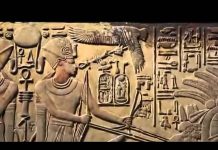Magna Carta, also known as the Great Charter, is a document that has played a significant role in shaping British liberties and democracy. It was created in 1215 to check the abuses of King John and has been seen as a cornerstone of the British legal system. In this article, we will take an in-depth look at the origins of the Magna Carta and its impact on British liberties.
David Starkey, a prominent historian, and constitutional expert delves into the history of the Magna Carta and its creation. He explains how a group of barons, fed up with the heavy-handed rule of King John, came together to demand certain rights and protections for themselves and their subjects. These demands were put into writing in the form of the Magna Carta and were agreed upon by King John under duress.
One of the most important clauses in the Magna Carta is the clause that states that no freeman shall be arrested or imprisoned without a fair trial. This clause laid the foundation for the principle of habeas corpus, which ensures that individuals cannot be detained without proper cause. The clause also paved the way for the development of the trial-by-jury system, which is still in use today.
Magna Carta also contains clauses that protect the rights of the Church and the rights of the City of London. These clauses helped to establish the separation of Church and state and protected the rights of the people against the arbitrary rule of the king.
In addition to its historical significance, Magna Carta continues to have a profound impact on British liberties today. Its principles of fairness, justice, and the rule of law continue to be upheld and defended in courts and government institutions. It serves as a reminder of the power of people to come together and demand their rights and freedoms.
In conclusion, Magna Carta is a document of immense historical significance and continues to play a vital role in shaping British liberties. David Starkey’s analysis provides a comprehensive understanding of its origins and impact, making it a must-read for anyone interested in the history of democracy and the rule of law.

































